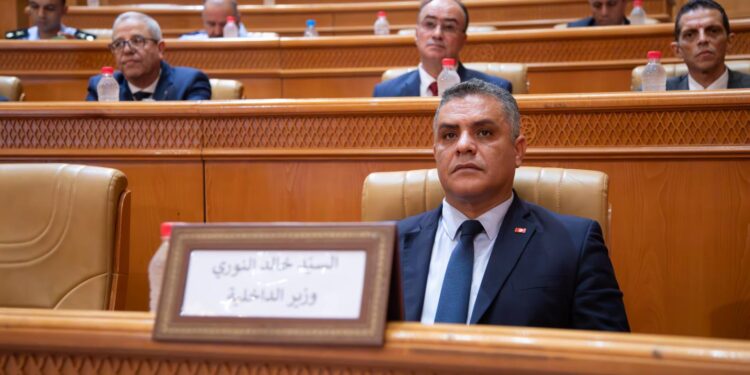Interior Minister Khaled Nouri presented a series of reforms and projects under way on Monday July 14, 2025 on Monday during thea session at the National Council of Regions and Districts. He notably announced the upcoming introduction of the passport and the biometric identity card, the modernization of security infrastructure, and measures against road accidents and natural disasters. These projects aim to strengthen security, improve services to citizens and adapt public action to technological and climatic challenges.
During his intervention, the minister detailed several projects initiated by his department:
More than 570 development and construction projects for premises for national security, national guard and civil protection services are currently underway across the country.
Dematerialization of administrative procedures
The ministry is working to launch new biometric identity and travel documents, in accordance with international standards, in particular those of the International Civil Aviation Organization. These documents will be reinforced against the risks of falsification.
The dematerialization of administrative procedures continues: the requests of bulletin n ° 3 can now be digitized in the police stations and posts of the National Guard, and the citizens will receive notifications by SMS for the withdrawal of their documents.
A network of interurban surveillance cameras is being installed to strengthen the efficiency of security monitoring.
At airports and at the port of La Goulette, the boarding pass has been completely removed, in favor of a digital system integrated into the border post.
Khaled Nouri insisted on the need to improve the quality of security services and increase the speed of intervention in the field. An exceptional program made it possible to provide more than 130 new vehicles to regional units without means of transport.
Road safety: revision of legislative texts
The Minister also recalled the main lines of the national road safety strategy 2025–2034, which aims to reduce fatal accidents by 50% within 10 years. This strategy is deployed in three stages: reduction of 10% by 2027; 25% reduction by 2030; reduction of more than 50% by 2034.
It is based in particular on the revision of legislative texts, the intensification of controls in risk areas, the strengthening of automatic radars, and the development of information systems. A pilot project for the digitization of accidents and data analysis has also been launched.
Finally, in the field of civil protection, several projects are underway such as the creation of new teams and intervention centers, with three already operational units and seven others in development or programming; the construction of a school specializing in forest fires and volunteering in Nebeur (KEF) and a training center for rescue in urban areas in Zriba (Zaghouan); The continuation of the development of volunteering, with a rise in power of civil protection associations throughout the territory.








